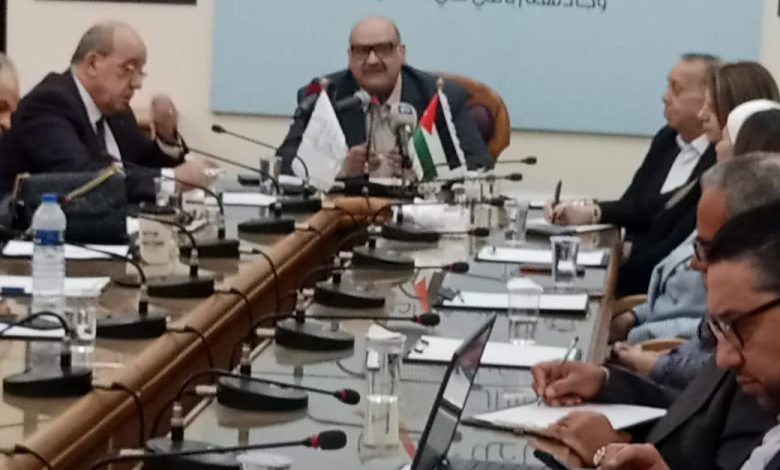
By : JD
Jordan Daily – A Jordanian think tank urged the international community on Thursday to intervene in the Gaza Strip, where a worsening humanitarian crisis threatens the lives and health of millions of people.
The Amman Group for Future Dialogues, led by Dr. Mohannad Al-Nsour, issued a report on the alarming situation in Gaza, following the escalation of the war on October7.
The report , seen by Jordan Daily , provides a comprehensive overview of the multifaceted challenges facing the region, including overpopulation, displacement, shortages of food and water, damaged infrastructure, and a collapsing healthcare system.
The report said that 80% of Gaza’s population depends on international aid for survival, and that the 16-year blockade and ongoing conflict have created a humanitarian disaster. It highlighted the fragility of Gaza’s healthcare system, which faces shortages of basic supplies, medications, and consistent electricity.
It also warned of the rising mental health issues among both the general population and healthcare workers, exacerbated by continuous trauma.
The report also examined the potential wider implications of the crisis in Gaza, particularly its impact on regional and global health and security. It said that the situation in Gaza is not isolated, but has far-reaching consequences that extend beyond its immediate geographic boundaries.
It called for immediate and coordinated international interventions, not just as a humanitarian response to the current crisis, but also as a preventive measure against the potential spread of disease and the escalation of health and security threats.
The Amman Group stressed the need for uninterrupted humanitarian and healthcare access in Gaza, and urged adherence to international humanitarian law, particularly in protecting civilians in conflict zones. It said that the international community has a critical role in mitigating such crises and the importance of a unified response to humanitarian emergencies.
The group also advocated for interventions that not only address the immediate needs of the population but also aim for long-term sustainable solutions. These solutions are crucial for restoring peace and stability in the region and for improving the overall living conditions of its inhabitants.

